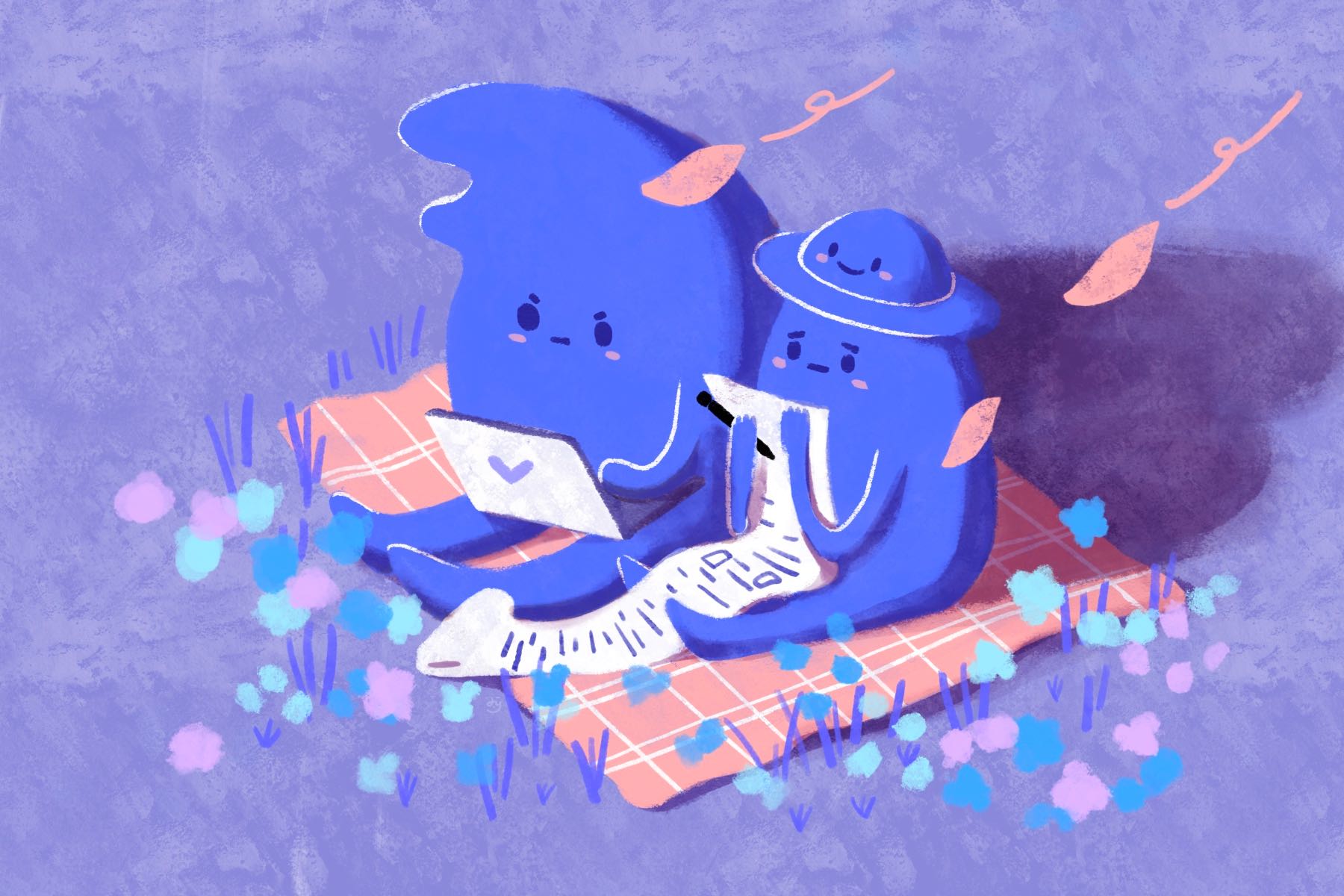You have an idea that comes to you in a burst of inspiration. Your mind is filled with the possibilities of where this thought will take you. You sit down with a hot cup of tea at dusk by your 19th century vintage typewriter as it rains outside — not too hard, of course, but just enough to complete the aesthetic. You poise your fingers over the keys, ready to type it out, write 12 or 13 pages of absolute genius, but your fingers stay suspended over the keys, unmoving. Seconds tick by. The ideas have stalled; your mind is buffering. It’s like that scene from “Spongebob” where all you’ve got after hours is a decorated, anticlimactic “The” at the top of the page. So, you call it a night and open up Netflix instead, feeling vaguely disappointed. Your tea has gotten cold.
Why does inspiration fizzle out like this? Why do ideas that seem amazing in the moment go kaput when a writer tries to put them to paper? Where does the mood go, where does the magic go?
As a writer myself, nothing is more frustrating than thinking up the greatest idea only to have it burn out like the flame on a birthday candle when I sit at my laptop. It’s discouraging. Writers — the real writers, the good ones — have a way with words, a gift that they impart unto the world by the way of books that can actually change the way people think. That’s inborn; one can’t teach that kind of power. Or so it’s easy to think. It’s easy, in moments of frustration, to believe that the really good writers have something amateurs don’t, something that the universe gave them before they were born. Real writers are supposed to be able to do this stuff naturally, so why can’t we?
That’s because it’s not natural. Real writers don’t just sit down at their laptops and allow their inborn gift to emanate from their fingertips, their minds languishing in repose. The innate ability to write — to make art of any kind — doesn’t exist. Real writing mostly consists of slaving over your pieces on a granular level until each grain is exactly the right size and shape and color, and then doing it all over again.
In 2013, Colorado-based author Verlyn Klinkenborg published a small writing manual titled “Several Short Sentences About Writing.” In comparison to cult classics like “Bird by Bird” by Anne Lamott or “On Writing” by Stephen King, Klinkenborg’s book is unassuming and not incredibly well-known. However, the way he chooses to tackle the project of writing is unlike the approaches of Lammott or King — or indeed anybody else.
The structure of “Several Short Sentences” is exactly what the title proclaims: The book is written in very short sentences with unadorned language and purposeful punctuation. This is Klinkenborg’s approach. If a writer can’t get a point across with short sentences like his, then the writer is attempting to write too early. There is no use writing fancy-sounding sentences if they lack substance — if those sentences aren’t told in only the way a certain writer can tell them, then they’re missing something.
One of his main points revolves around the idea of the “flow state,” the mythologized manner of writing in which words just come to a writer, and the idea they want to convey simply spills out onto the page in front of them. Every writer has experienced this, and it is intoxicating. Writers keep hoping for the “flow state” to happen, but according to Klinkenborg, the “flow state” is not only the wrong goal to aim for, but it is also an insidious one.
What happens when a writer is in the coveted “flow state”? They are able to write without slaving over word choice because what appear to be the right words come automatically to them — in short, they are able to write without thinking. In Klinkenborg’s view, this hypnotized state of writing that involves little brain work is not only undesirable, but it also tricks you into writing words that are not your own. He calls sentences that come automatically “volunteer sentences” — language borrowed and internalized from other writers who came before you. To put these on paper, the writer is not thinking at all. They are simply co-opting another writer’s thinking. These readymade phrases are not strong because they come quickly and they signify a lack of individuality. And individuality in writing comes from a writer’s genuine interest in a subject and their description of it in a way that is carefully engineered.
This means that good writing is only so because it is worked at on a word-by-word level. It is the product of conscious choices that happen within a writer’s mind — influenced by other writers, yes, but not constructed by them. That is what makes someone’s work original and compelling: when a writer creates sentences that contain words of absolute necessity, that cannot be replaced or reduced. Klinkenborg says it best:
“But if you accept that writing is hard work
And that’s what it feels like when you’re writing
Then everything is just as it should be.
Your labor isn’t a sign of defeat.
It’s a sign of engagement.
The difference is all in your mind, but what a difference.
The difficulty of writing isn’t a sign of failure.
It’s simply the nature of the work itself.”
This idea is liberating for writers, especially new ones who often find themselves in the stasis caused by “writer’s block.” Klinkenborg’s philosophy proclaims that writer’s block doesn’t exist — it simply comes from the idea that writing should be natural and easy. Art takes work. And work is hard and exhausting. An article from The Guardian on writer’s block brusquely advises its readers to “stop expecting writing itself to be pleasurable.” With enough work, the product will be pleasurable; the act, on the other hand, is a job like any other. This is not a pessimistic take on the process of artistic creation — the thing that one can see themselves doing for the rest of their lives can also be just a job. It’s not that there isn’t magic in creation, it’s that that magic is every day, infused in the words that only an individual can pick.
The first episode of Netflix’s docuseries “Abstract: The Art of Design” features renowned illustrator Christoph Niemann. He, too, touches on the concept of inspiration and magic in creation:
“So I think Chuck Close once said, ‘Inspiration is for amateurs. Us professionals, we just go to work in the morning.’ The one thing I really love about that quote is that it relieves you of a lot of pressure. It’s not about waiting for hours for this moment where inspiration strikes. It’s just about showing up and getting started, and then something amazing happens or it doesn’t happen. All that matters is you enable the chance for something to happen.”
The link between these ideas is clear: Inspiration is finicky at best, and real art only appears from an open mind and consistency. To write well, one must write consistently and use only the words that make sense to them. Only then will it be fully one’s own — complete, authoritative and transformative.

















